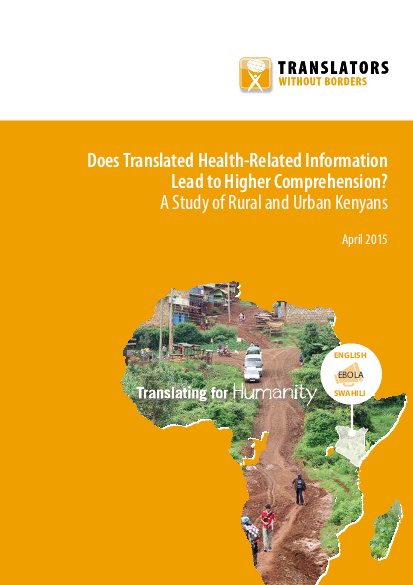
197 Kenyans participated in a research study designed to examine the level of comprehension of health-related information when presented in English and translated into Swahili.1 Participants were asked questions about language competence and preferences and some pre-task questions on their knowledge of Ebola. They were then given either an English-language information poster to read or a Swahili version and were subsequently asked further questions about their knowledge of Ebola. The summary of results is as follow:
- Despite English being an official language in Kenya, understanding of it is very limited.
- Prior knowledge of Ebola was low among participants, regardless of age, gender, or abode (rural vs. urban).
- People reading health information in English understand very little.
- Providing the same information in Swahili leads to a very significant increase in comprehension.
- A huge majority prefers to receive health-related information in spoken format.
- Public gatherings, church and radio were listed as preferred modes of communication for health-related
- information, apart from Information Leaflets.